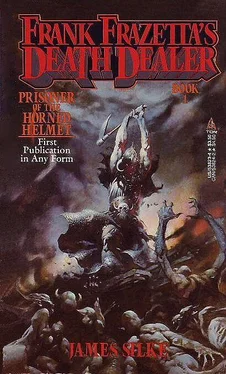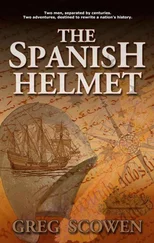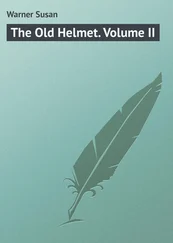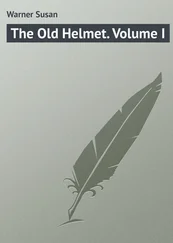James Silke - Prisoner of the Horned helmet
Здесь есть возможность читать онлайн «James Silke - Prisoner of the Horned helmet» весь текст электронной книги совершенно бесплатно (целиком полную версию без сокращений). В некоторых случаях можно слушать аудио, скачать через торрент в формате fb2 и присутствует краткое содержание. Жанр: Фэнтези, на английском языке. Описание произведения, (предисловие) а так же отзывы посетителей доступны на портале библиотеки ЛибКат.
- Название:Prisoner of the Horned helmet
- Автор:
- Жанр:
- Год:неизвестен
- ISBN:нет данных
- Рейтинг книги:4 / 5. Голосов: 1
-
Избранное:Добавить в избранное
- Отзывы:
-
Ваша оценка:
- 80
- 1
- 2
- 3
- 4
- 5
Prisoner of the Horned helmet: краткое содержание, описание и аннотация
Предлагаем к чтению аннотацию, описание, краткое содержание или предисловие (зависит от того, что написал сам автор книги «Prisoner of the Horned helmet»). Если вы не нашли необходимую информацию о книге — напишите в комментариях, мы постараемся отыскать её.
Prisoner of the Horned helmet — читать онлайн бесплатно полную книгу (весь текст) целиком
Ниже представлен текст книги, разбитый по страницам. Система сохранения места последней прочитанной страницы, позволяет с удобством читать онлайн бесплатно книгу «Prisoner of the Horned helmet», без необходимости каждый раз заново искать на чём Вы остановились. Поставьте закладку, и сможете в любой момент перейти на страницу, на которой закончили чтение.
Интервал:
Закладка:
The thunder came again, a hard repetitive clap.
Anxiety filled her eyes and she protested, “No! I would never let any desire for him interfere with my judgment. I swear it.”
Flames rose up out of the pits, reached for the ceiling in towering walls, filled the cone with a blinding illumination until she was only a tiny vague shadow. She gasped and dropped to one knee, humbled by the power and majesty of her deity, thrilled and empassioned by his invincible strength.
“I understand and will obey.” She spoke with reverence and obedience. “I am to have the totems delivered, by my most trusted servant, to the high priest of the Kitzakks, Dang-Ling, who dwells in their desert city of Bahaara.”
Thunder rumbled quietly and steadily from the bowels of the earth. Cobra nodded repeatedly as she listened to it, then replied, “I will not forget. The secret of the high priest’s service and devotion to you will not be betrayed. It will be his task, not mine, to use the totems to humble and educate Gath of Baal, and convince him that he must align himself with you, my most holy Lord of Death, in order to satisfy his honor and pride.”
A slap of thunder echoed through the cone with a peculiar ring of approval.
She rose obediently, and said respectfully, “Thank you, Master, I understand now. If Gath of Baal is killed by the high priest’s efforts, then he is not the man I have claimed him to be. But if he is that man, then only the threat of death can now instruct him.”
The altar rumbled like a thousand well-fed stomachs, and Cobra, bowing low, backed slowly out of the room.
Returning to her chamber, she sent for Schraak, a small, devious, grey-skinned alchemist with perpetually blinking eyes who sidled into the room like a favored pet. She reluctantly handed him the turquoise jar and told him to deliver it promptly and secretly to the high priest Dang-Ling in the distant desert city of Bahaara.
When he had left, Cobra paced her chambers frantically without relief. She threw herself on the bed and writhed in an agony of rage and frustration, then surrendered and moaned hungrily as a craving to feel Gath’s human power again possessed her. It would be days, perhaps, weeks, before Schraak could deliver the jar, and Dang-Ling could prepare his magic and act. And all she could do was wait.
Nine
A new sound came from Rag Camp. The daily jangle of tambourines, thumping drums, singing flutes and children’s laughter now mixed with the music of tinkling silver. The Grillards, whose specialty was low farce, had been thrust into the high drama of good fortune.
The camp was situated at the northeastern edge of the valley where the river called Whitewater formed the natural border between the territories of the lawfully established Barbarian tribes and the Valley of Miracles. Outlaw territory. A massive grey rock, Stone Crossing, straddled the river which passed through a natural tunnel at its base. The trail called the Way of the Outlaw passed over Stone Crossing then came to an end in a spread of bald dusty ground which formed the center of Rag Camp, a name derived from the Grillard dependence on and preference for rag patches.
A scatter of women, children, big young country louts, itinerant peddlers, traveling merchants and charlatans were coming down the trail. Their pace was anxious. Their manner was both excited and furtive. They were doing something that was at least suspect, if not downright punishable, and were having a fine time doing it.
Wagons and horses, belonging to strangers as well as recognized members of various nearby tribes, were already parked at the edge of the clearing. The occupants were moving about the camp excitedly. No lords or nobles were among them. They were common folk with tight pockets and tight minds. But their normally country-sharp and forest-wise faces reflected no suspicion. Instead they were giddy and gullible. Eager to be amazed.
With oohs and aahs, they shopped along a row of homespun blankets spread in front of eleven house-wagons which formed the body of a camp. Displayed on the blankets were the carefully butchered and brightly painted bones of the dead Kitzakk scouts: totems which were assured to make the child safe and the sword arm strong. They were arranged according to anatomy and size. Wrists and anklebones began the line, and boiled and scraped skulls mounted on poles and painted with macabre blacks, indigos and blues, ended it.
The buying was active, and, as the Grillards had been instructed by their bukko to take nothing but silver, the sound of it was loud and constant.
Dowats, being the largest tribe of the forest, were the most numerous and outstanding in their traditional bright persimmon tunics. A careful people, they bought quickly and left immediately, avoiding the main trail over Stone Crossing. Savage Kraniks from the north were numerous. They were still ruled by women, and wore loincloths, white clay markings and had wide dazzled eyes. They had arrived the day before, showed no sign of leaving, and haggled over the relative strength of each totem they examined. There were also Cytherians from Weaver in white tunics, and small groups of outlaws in bushy furs and as many weapons as their belts and chests could display. Also among the crowd were traveling vendors and charlatans selling rejuvenating waters, painkillers for toothaches, racy jokes and love philters.
At the end of the village the Wowell witches from Bone Camp offered their talents as surgeons, cut hair, pulled teeth and appraised totems for a price. They had done the butchering for Brown John and were proud of it. They had not washed since doing the work so everyone would know it. Old blood clotted their dark bony arms up to their elbows. As payment for their work they had been given Sergeant Yat’s body, and had carefully reconstructed his bones. Displayed on their wagon bed were two complete hands, feet, legs, arms, and a pelvic region, chest and skull. Expensive totems, but capable of spreading their magic throughout an entire household or small outlaw band.
At the middle of the clearing, children battled with swords made from twigs and branches. The largest wore tattered black furs and swung an axelike stick with a ball of rags tied around its working end. The smaller children, boys and girls alike, fed their small bodies to this weapon with abandon and went reeling about to roll in the dirt and die in spectacular fashion, with terrible gagging, prolonged choking, and howling screams.
The music for this occasion was provided by tambourines and flutes of Grillard players who sat or squatted at the front of the large stage at the opposite side of the clearing from the wagons. Behind the stage was a two-story, red house-wagon which served as a backdrop for the stage as well as being home to the bukko. At the sides of the stage were two yellow wagons which were used as stage wings, dressing rooms and homes for the dancing girls. They also made convenient brothels during the cold season.
At midday the players put down their flutes and tambourines, gathered up drums and beat out a strident drumroll to announce the main entertainment.
A small crowd gathered in front of the stage, and Brown John stepped out of the red wagon to greet them with open arms. He bowed with great respect to their scattered ovation and, with sonorous voice and elaborate gestures, informed them they were about to see a tale performed that was so daring and realistically portrayed that it was only for the stouthearted. This increased the size of the crowd substantially, especially with children. He stepped aside, the performers arranged themselves on the stage, and a young boy with a soaring tenor voice delivered the song with which the Grillard minstrels had been attracting customers to Rag Camp.
Читать дальшеИнтервал:
Закладка:
Похожие книги на «Prisoner of the Horned helmet»
Представляем Вашему вниманию похожие книги на «Prisoner of the Horned helmet» списком для выбора. Мы отобрали схожую по названию и смыслу литературу в надежде предоставить читателям больше вариантов отыскать новые, интересные, ещё непрочитанные произведения.
Обсуждение, отзывы о книге «Prisoner of the Horned helmet» и просто собственные мнения читателей. Оставьте ваши комментарии, напишите, что Вы думаете о произведении, его смысле или главных героях. Укажите что конкретно понравилось, а что нет, и почему Вы так считаете.












